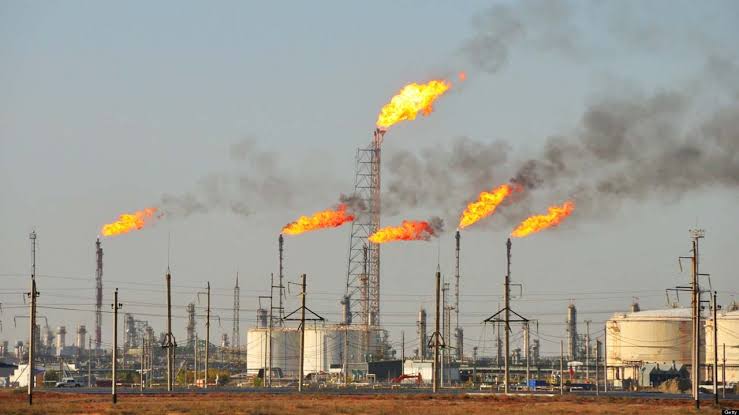Despite years of promises and laws banning it, Nigeria continues to burn off massive amounts of natural gas, costing the nation an estimated $63 billion and putting lives and the environment at risk.
Gas flaring, the burning of excess gas during oil production remains a major issue in Nigeria, especially in the oil-rich Niger Delta region. According to the World Bank, Nigeria is one of the world’s top five gas-flaring countries, wasting about 4.6 billion cubic meters of gas annually.
The effects of this long-standing problem are far-reaching. Environmental damage, health problems, and lost economic opportunities continue to mount, with local communities bearing the brunt. Residents near gas flaring sites report constant vibrations, sleepless nights, cracked buildings, polluted water, and worsening health conditions including respiratory issues, birth defects, and even increased cancer rates.
“We’re literally being poisoned daily,” said Morris Alagoa of the Environmental Defenders Network. “Our people are dying young. The air, water, and soil are no longer safe.”
Local leaders and community members in areas like Okolobiri say the situation is deteriorating. They complain of poor air quality, destroyed farmland, and the complete lack of clean drinking water due to constant contamination.
Flaring not only hurts the environment — by releasing harmful greenhouse gases like methane and carbon dioxide — but also represents a major economic loss. The gas being burned could power homes, support industries, or be sold to generate revenue. Experts argue that this wasteful practice continues because fines for flaring are too low to deter oil companies.
Although gas flaring has been illegal in Nigeria since 1979, enforcement has remained weak. Oil companies often choose to pay small penalties rather than invest in the infrastructure needed to capture and use the gas.
“There’s no political will to enforce the law,” said Alagoa. “The government prefers to collect small fines instead of stopping the pollution.”
Past efforts by the government to end gas flaring — including various deadlines and projects — have repeatedly failed. Civil society groups accuse authorities of lacking commitment and of allowing oil firms to escape accountability.
Yet, experts say it’s not too late to reverse the trend. They call for strict enforcement of existing laws, higher penalties for violators, and better investment in gas collection and processing infrastructure.
Countries like Brazil, Egypt, and Indonesia have shown that it’s possible to significantly reduce flaring when there is strong political backing. Nigeria, too, could benefit greatly by capturing this wasted resource — powering local economies, reducing health risks, and protecting the environment.
Ending gas flaring isn’t just about stopping pollution. It’s also a chance to grow the economy, create jobs, and ensure a better future for millions of Nigerians, especially those in the oil-producing regions who have suffered the most.











